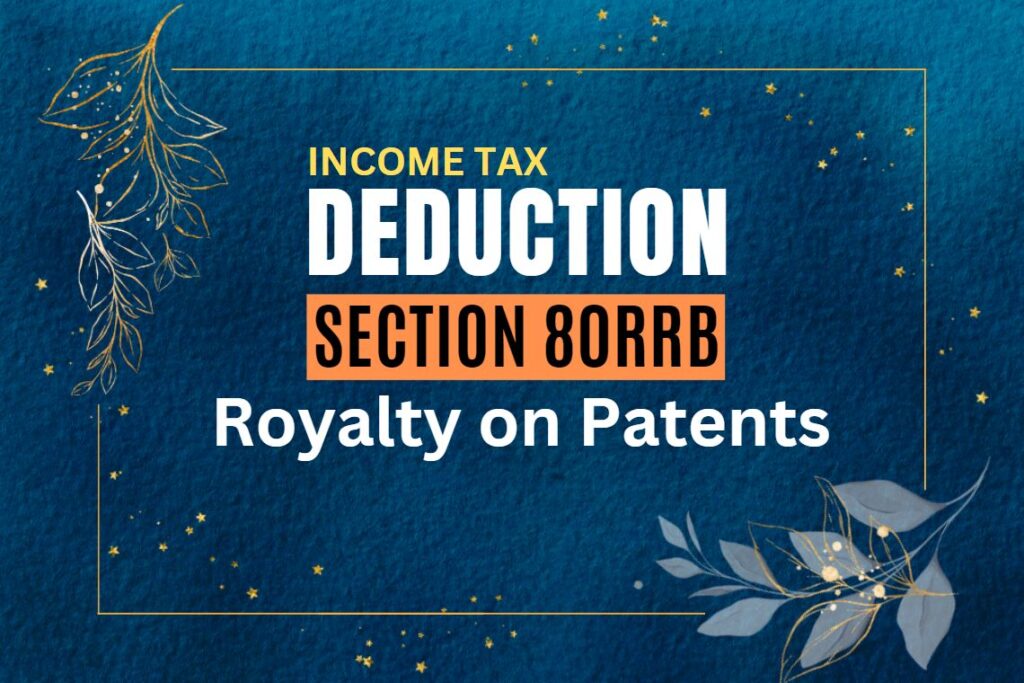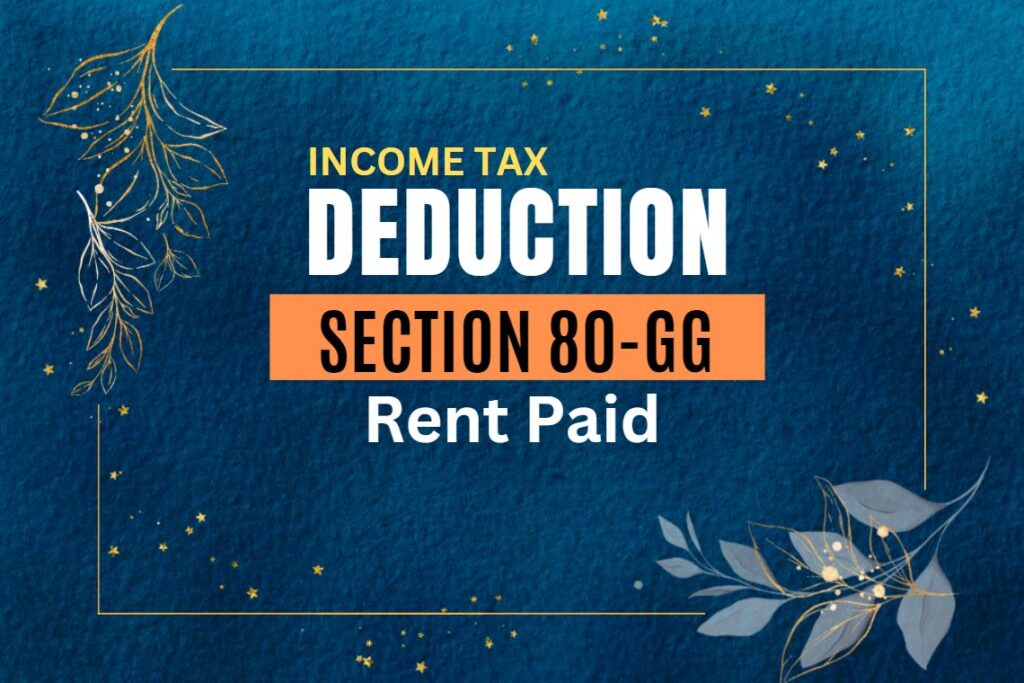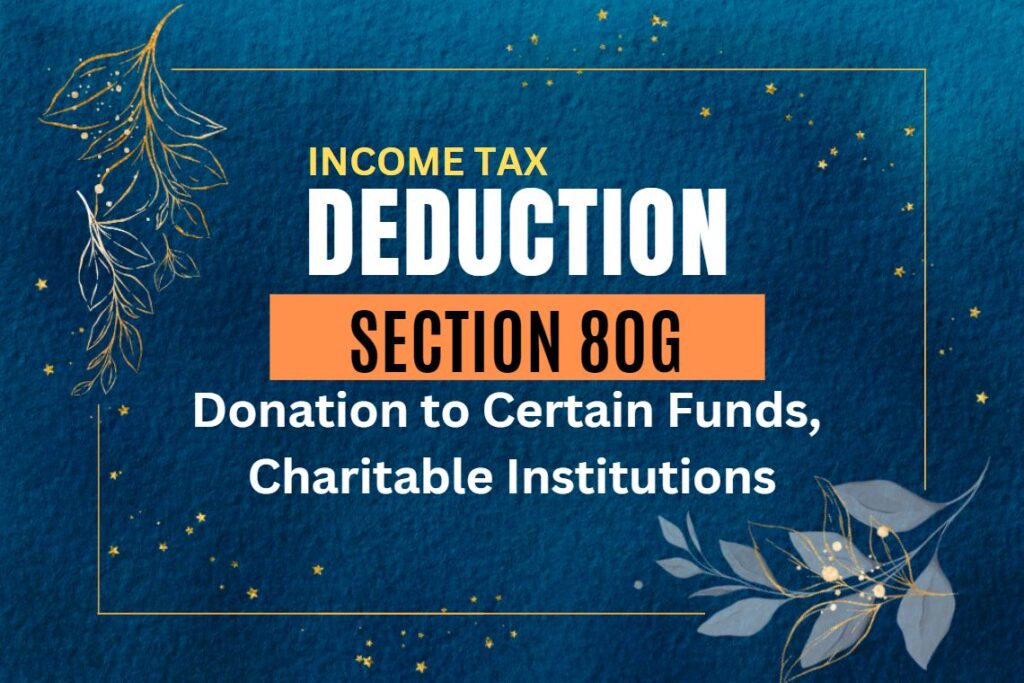Section 80QQB of the Income Tax Act provides a deduction in respect of royalty income earned by authors. This section aims to encourage and support the creative pursuits of authors in India by providing them with tax benefits. In this blog post, we will explore the provisions of Section 80QQB and understand how authors can claim this deduction.
Eligibility Criteria
The following Conditions should be Satisfied in order to claim Deduction under Section 80QQB in respect of Royalty income of Authors.
Essential conditions for claiming deduction under this section 80QQB :
(1) The deduction is available to an individual who is resident in India and is an author of a book.
(2) The book should be a work of literary, artistic or scientific nature.
(3) The income must be derived by him in the exercise of his profession.
(4) The income must be either:
(a) on account of any lump sum consideration for the assignment or grant of any of his interests in the copyright of such book, or
(b) of royalty or copyright fees (whether receivable in lump sum or otherwise).
Here are some examples of books that are eligible for the deduction under Section 80QQB:
- Novels
- Short story collections
- Poetry collections
- Non-fiction books on a variety of topics, such as history, science, and philosophy
- Textbooks for schools and colleges
- Children’s books
The deduction is not available for the following types of books:
- Newspapers
- Magazines
- Journals
- Pamphlets
- Brochures
- Commentaries
- Guides
Quantum of Deduction U/s 80QQB :
The deduction allowed under Section 80QQB is equal to the lower of the following:
- Income received as royalty or any consideration in the form of royalty.
- ₹3,00,000
This means that if an author has earned royalty income of ₹2,50,000, the deduction allowed under Section 80QQB will be ₹2,50,000. However, if the author has earned royalty income of ₹4,00,000, the deduction allowed will be limited to ₹3,00,000.
However, where the income by way of such royalty or the copyright fee is not a lump sum consideration in lieu of all rights of the assessee in the book, then such royalty, etc., before allowing expenses, in excess of 15% of the value of such books sold during the previous year, shall be ignored.
Further, where any income is earned from any source outside India, only so much of the income shall be taken into account for the purpose of this section as is brought into India by, or on behalf of, the assessee in convertible foreign exchange within a period of six months from the end of the previous year in which such income is earned or within such further period as the competent authority may allow in this behalf.
Certificates to be Furnished:
(1) No deduction under this section shall be allowed unless the assessee furnishes a certificate in the prescribed form (Form No. 10CCD) arid in the prescribed manner, duly verified by any person responsible for making such payment to the assessee, along with the return of income, setting forth such particulars as may be prescribed.
(2) No deduction under this section shall be allowed in respect of any income earned from any source outside India, unless the assessee furnishes a certificate, in the prescribed form (Form No. 10H) from the prescribed authority, along with the return of income in the prescribed manner.
No Double Deduction:
Where a deduction for any previous year has been claimed and allowed in respect of any income referred to in this section, no deduction in respect of such income shall be allowed under any other provision of the Act in any assessment year.
| (1) “Author” includes a joint author;
(2) “Books” shall not include brochures, commentaries, diaries, guides, magazines, journals, newspapers, pamphlets, text books for schools, tracts and other publications of similar nature, by whatever name called; (3) “Lump sum”, in regard to royalties or copyright fees, includes an advance payment on account of such royalties or copyright fees which is not returnable. (4) Prescribed authority shall be the Reserve Bank of India or such other authority as is authorised under any law for the time being in force for regulating payments and dealings in foreign exchange. |
Example :
Here is an example of how to calculate the deduction under Section 80QQB:
An author earns a royalty income of Rs. 4 lakhs from the sale of his book. The author’s expenses related to the book are Rs. 50,000.
– The author’s net royalty income is Rs. 3.5 lakhs (Rs. 4 lakhs – Rs. 50,000).
– The author is eligible for a deduction of Rs. 3 lakhs under Section 80QQB.
– The author’s taxable income is Rs. 50,000 (Rs. 3.5 lakhs – Rs. 3 lakhs).
– The author will have to pay tax on Rs. 50,000.
Important Points to be Note :
Here are some additional points to note about the deduction under Section 80QQB:
- The deduction is available only to individual resident authors. Non-resident authors are not eligible for the deduction.
- The deduction is available only for royalty income earned from the sale, distribution or subscription of books. Royalty income earned from other sources, such as movies, TV shows, or music, is not eligible for the deduction.
- The deduction is available only for royalty income earned from books that are works of literary, artistic or scientific nature. Textbooks are also eligible for the deduction.
- The deduction is equal to the amount of royalty income earned in the relevant financial year or Rs. 3 lakhs, whichever is lower.
- To claim the deduction, the author must file a return of income with the Income Tax Department and submit the required documents.
Section 80QQB provides a beneficial deduction for authors who earn royalty income from their original work. It recognizes the importance of creativity and encourages authors to continue their pursuit of literary, artistic, or scientific endeavors. Authors who meet the eligibility criteria should make use of this deduction to reduce their tax liability and promote their creative endeavors.











